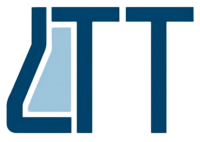
Pathology courses in Mandurah
Course providers in Mandurah
The following providers offer Pathology courses in Mandurah.




















Career Pathfinder
Skills shortages + AI Exposure
Discover in-demand careers and understand how each role may be impacted by AI and automation.
- See in-demand occupations across Australia
- Check AI Exposure ratings
- Compare training duration and average income
Common questions
Absolutely! The Certificate III in Pathology Collection is designed for beginners, making it an ideal choice for those with no prior experience in healthcare. The course covers foundational skills like venepuncture, specimen handling, and workplace safety, while also developing soft skills like patient communication. Clinical placements provide hands-on experience, allowing students to apply their knowledge in real healthcare settings. Many graduates start with no background in healthcare but leave feeling confident and job-ready.While further training would be required for career advancement, pathology collection is an excellent doorway to the healthcare industry for those who have no industry experience.
 Sarah Knuckey
Sarah Knuckey
Missing veins is a common part of learning to perform venepuncture, and every student experiences it during training. Sarah Knuckey from Lab Tech Training told us that students start on silicone arms to build basic techniques before advancing to supervised practice on peers. Instructors provide detailed feedback to help students improve and gain confidence. Mistakes are treated as learning opportunities, not failures. With time, repetition, and expert guidance, students develop the precision and confidence needed to perform venepuncture effectively in real-world settings.
 Sarah Knuckey
Sarah Knuckey
Further reading


Certificate III in Pathology Collection: Everything You Need to Know
10th February 2025
Most popular health courses
29th June 2022All courses
- HLT37415 Certificate III in Pathology Assistance
- HLT37215 Certificate III in Pathology Collection
- MSL40122 Certificate IV in Laboratory Techniques
- HLTINF005 Maintain Infection Prevention for Skin Penetration Treatments
- Bachelor of Biomedical Science
- Bachelor of Science (Microbiology and Immunology)
- Bachelor of Medical Laboratory Science
- Bachelor of Medical Science
- Bachelor of Science (Honours) (Biomedical Science)
- Bachelor of Science (Genetics)
- Bachelor of Science (Pharmacology)
- Bachelor of Biomedical Science (Infection and Immunity)
- Bachelor of Medical Laboratory Science (Honours)
- Master of Laboratory Medicine
- HLTPAT005 Collect Specimens for Drugs of Abuse Testing
- Master of Science (Biotechnology)
- Bachelor of Advanced Science (Honours) (Genetics)
- Master of Biomedical Science
- MSL50122 Diploma of Laboratory Technology
- Bachelor of Science (Pathology)
- Bachelor of Medical Studies / Doctor of Medicine
- Bachelor of Biomedical Science (Honours)
- Master of Science (Biomedical Science)
- Bachelor of Advanced Science (Honours) (Microbiology)
More about Pathology courses
For those interested in carving out a career in the healthcare sector, Pathology courses in Mandurah offer a variety of pathways into fields such as Cosmetic Surgery, Midwifery, and Physiotherapy. These courses are designed for students seeking the essential skills needed in the effective diagnosis and treatment of medical conditions. With a total of 20 offerings available in Mandurah, learners have various options to suit their career aspirations and interests in the pathology discipline.
Prominent training providers in the Mandurah area include LTTV, South Metropolitan TAFE, and Kelyn Training Services, which specifically teaches the course on Collect Specimens for Drugs of Abuse Testing. Other notable institutions such as Curtin University and Murdoch University, which offers the Bachelor of Laboratory Medicine, can significantly enhance your qualifications in the pathology field. Aspiring professionals can also explore courses at The University of Notre Dame Australia and UWA, broadening their educational landscape in Mandurah.
The diverse range of Pathology courses available enables students to delve into specialised areas such as Optician, Aromatherapy, and Psychology. By pursuing training in these fields, students can prepare themselves for critical roles such as laboratory technicians and health practitioners, making significant contributions to the healthcare system in the Mandurah region. With a blend of practical and theoretical training from esteemed providers, the pathway to a fulfilling career in pathology starts here in Mandurah, 6210 Australia.
